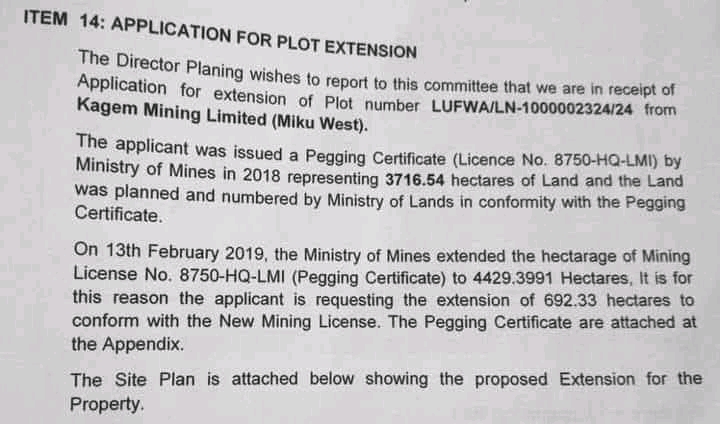Is the UPND Government Undermining Zambia’s Mineral Wealth?
Concerns are mounting over the UPND government’s recent decisions regarding Zambia’s gemstone sector, with accusations that their actions are eroding the country’s gains in resource management and sovereignty. At the center of the storm is the controversial issuance of mining certificates that allegedly infringe on Zambian-owned mines with existing court injunctions.
Kagem, the world’s largest emerald mine, has become a symbol of what critics see as Zambia’s failure to fully benefit from its vast natural wealth. The government owns 25% of Kagem, while 75% is controlled by foreign entities. Despite its annual production reportedly valued at $15.6 billion, Zambia received a mere $1.5 million in dividends over six years.
“Are we cursed mathematically?” asked UPPZ President Charles Chanda, who has been vocal in his criticism. “How do we settle for such meager returns on a resource generating billions every year?”
The alleged decision to allocate land for Kagem’s expansion, potentially overriding traditional leaders and court rulings, has sparked widespread outrage. Chiefs in Lufwanyama, where the mine is located, play a crucial role in land governance, and their consent is legally and culturally necessary.
“Our Chief is educated and fully aware of the implications,” said a local community representative. “Why is the government ignoring traditional authorities and the rightful owners of the land?”
The Kagem case underscores a broader issue: the dominance of foreign-owned companies in Zambia’s mining sector. While foreign investment is vital, critics argue that the current arrangements leave Zambia with crumbs, fueling inequality and undermining local ownership.
The government’s apparent willingness to prioritize foreign interests over Zambian entrepreneurs and traditional stakeholders is causing friction. Opposition leaders have called for a recalibration of policies to protect national interests.
To ensure that Zambia’s gemstones benefit its citizens, the government must:
1. Renegotiate Agreements: Existing contracts must be revisited to ensure fairer profit-sharing.
2. Empower Local Stakeholders: Support Zambian entrepreneurs in the mining sector to reduce dependency on foreign corporations.
3. Respect Traditional Authorities: Chiefs and local communities must have a say in decisions affecting their land and resources.
4. Increase Transparency: Public access to financial and operational reports from foreign companies is essential for accountability.
Chanda’s warning of nationalization by 2026 reflects growing frustration among Zambians who feel excluded from their country’s wealth. While such measures could empower the nation, they also risk deterring foreign investment, a delicate balance the government must consider.
The UPND government faces a critical juncture. Its handling of the Kagem issue and broader mining policies will determine whether Zambia can reclaim control over its resources or remain a nation exploited by foreign interests. Citizens are watching closely, and the message is clear: Zambia’s wealth must serve Zambians first.
Failure to act decisively could have political and economic repercussions, potentially shifting the country’s approach to resource management for years to come.
KUMWESU NOV 30, 2024
Is the UPND Government Undermining Zambia’s Mineral Wealth?
